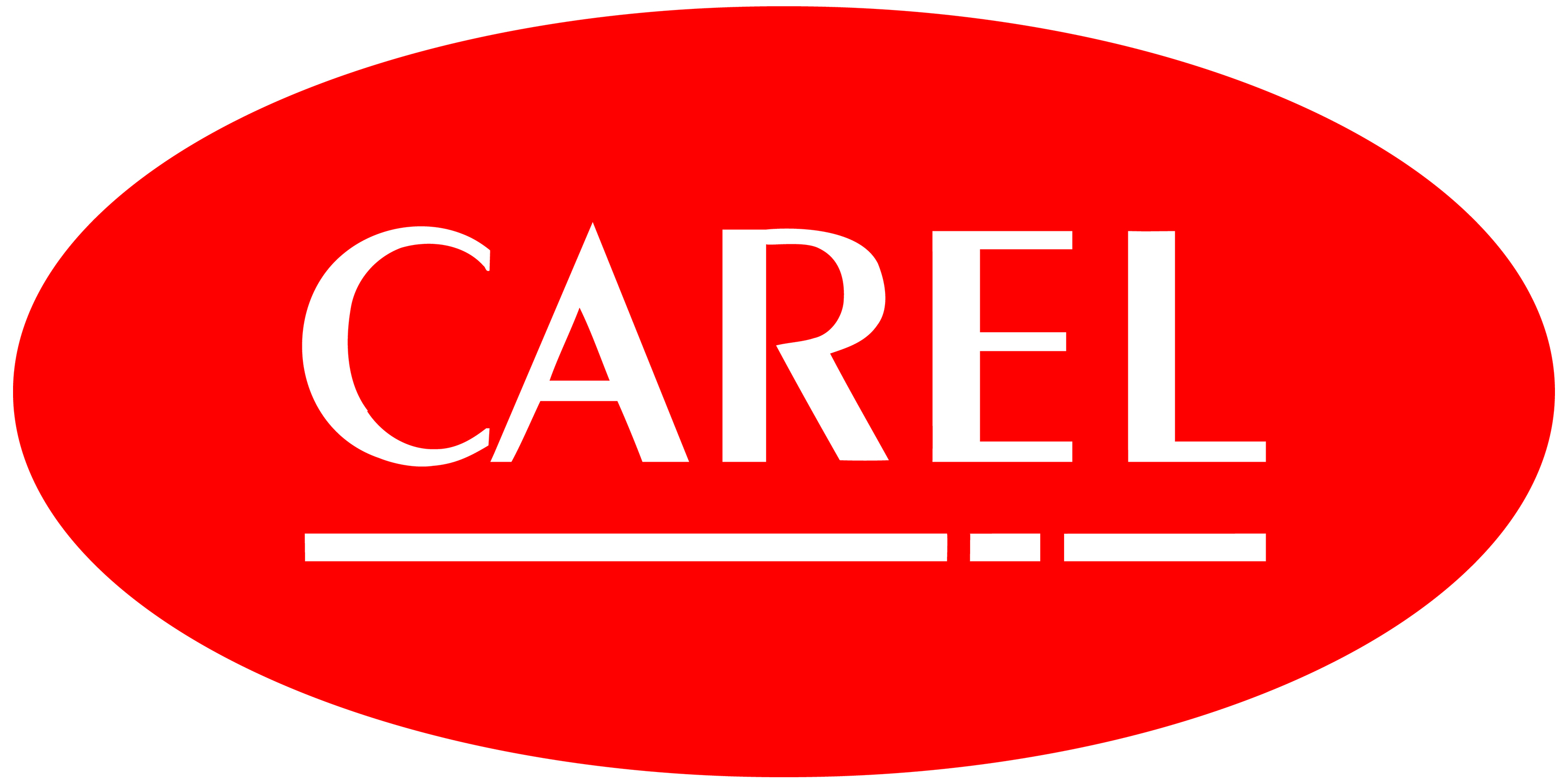Intervista Favaro Bianchi
"...as far back as 2005 we started designing solutions that made it possible to collate information from multiple sites."
When did CAREL first start talking about IoT?
Favaro: IoT is the consequence of a much broader strategy that dates back to shortly after CAREL was founded. This strategy has led to CAREL's offering being transformed from the proposal of individual products to the concept of "system" or "solution".
Initially, our offering comprised control solutions for air conditioning or refrigeration units, made up solely of a user terminal, an electronic controller with the application software that manages the unit, and a number of sensors. Technological evolutions subsequently made it possible to expand the proposed solution, allowing us to add further components for complete management of the refrigeration system, such as electronic valves, inverters and more recently apps. At the same time, supervision products were developed for the retail market, in particular for supermarkets, designed to fulfil the primary need of promptly recognising alarms on the refrigerated cabinets that caused an interruption in the cold chain. These supervision products soon became the management and control system for the entire supermarket.
The natural evolution of this, in 2005, was the creation of a new "Remote" software product, allowing large chains to monitor and collect information from multiple supermarkets. In this way, as far back as 2005 we started designing solutions that made it possible to collate information from multiple sites; the cloud had not been invented yet, so we needed to rely on the customer's own servers.

What was the journey that led CAREL to approach IoT and open a specific department?
Favaro: The evolution of the system concept, in which the value provided to customers is greater than the sum of the individual components, right up to cloud-based integration of connected units, progressed quite "naturally", following the technological developments in the sector.
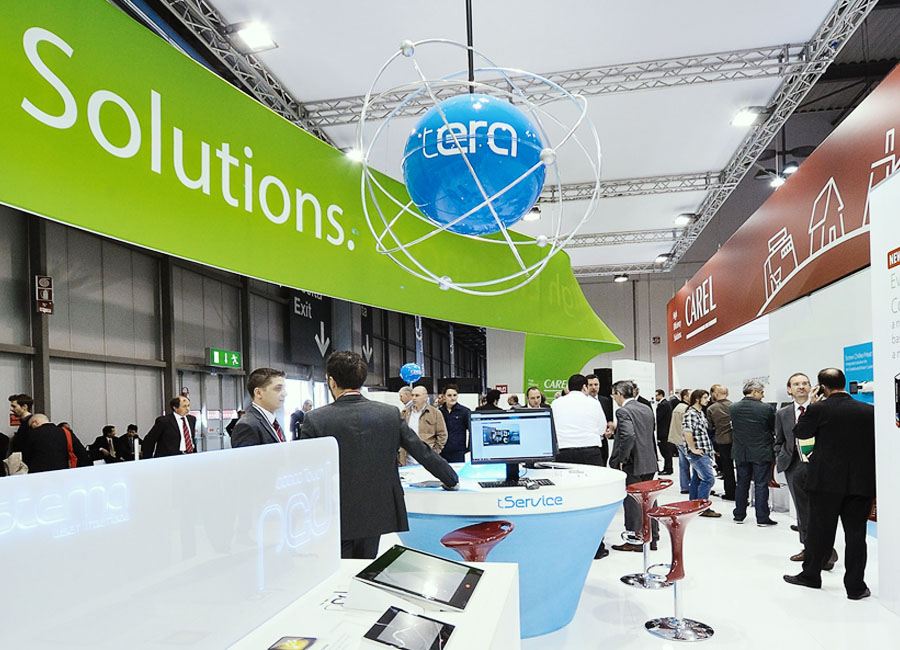 In 2010, development started on tEra, the digital platform through which CAREL offered a connectivity service for collecting data (such as alarms and other information), something that was cutting-edge at the time. In 2012, we officially presented at trade shows what could be defined as CAREL's first digital service. We then also began offering a remote service for managing supermarkets based on cloud infrastructure, i.e. no longer with the software installed on the customer's servers. In 2017, we began thinking about how to respond to the emerging trend of cloud and related services, sectors with a much faster time-to-market than that of the hardware products that CAREL has always designed and manufactured. Consequently, in 2018 the Digital Department was created as a startup within CAREL, and was further expanded in 2021.
In 2010, development started on tEra, the digital platform through which CAREL offered a connectivity service for collecting data (such as alarms and other information), something that was cutting-edge at the time. In 2012, we officially presented at trade shows what could be defined as CAREL's first digital service. We then also began offering a remote service for managing supermarkets based on cloud infrastructure, i.e. no longer with the software installed on the customer's servers. In 2017, we began thinking about how to respond to the emerging trend of cloud and related services, sectors with a much faster time-to-market than that of the hardware products that CAREL has always designed and manufactured. Consequently, in 2018 the Digital Department was created as a startup within CAREL, and was further expanded in 2021.
The new department brought together IoT (i.e. data collected in the field) with analytics (i.e. the processing of data using algorithms to give users useful information) through the use of AI (i.e. artificial intelligence that generates insights) to enable the delivery of digital services. The latter were accompanied by the sale of non-digital services and, again in 2021, a new department (Services) was created to manage market development.
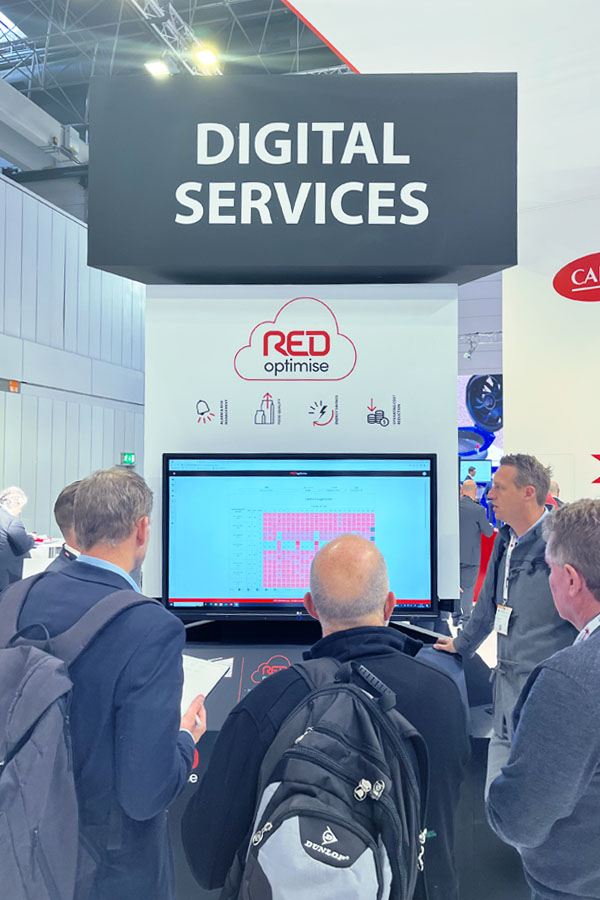 Why has CAREL continued to develop services, and in particular digital services?
Why has CAREL continued to develop services, and in particular digital services?
Favaro: Hardware products risk becoming more and more standardised (due to increasing commoditisation), and differentiation from the competition is more and more dependent on a system concept, which has evolved over time to include digital services. Regarding the latter, by exploiting our thermodynamic expertise, we have been able to establish our place in the market despite the moves by the big players (such as Amazon, Microsoft, etc.).
Indeed, the value comes not so much from collecting the data, but rather from having strategies in place to prepare the data for analysis, to explore, analyse and display the data, to create models using the data, as well as to implement these models in applications so as to deliver value to different types of customers. These activities are managed by our data scientists, who deal with data strategies for the generation of analytics.
Let me give you an example: collecting the temperatures of refrigerated showcases every five minutes in a chain of 1,000 supermarkets with 50 showcases means acquiring 432 million pieces of information every month; and this is if we were to acquire just a single piece of information, while in reality usually several dozen data points are acquired.
The value comes from being able to identify which showcases are showing a decline in performance over time or that, in the same conditions, operate less efficiently or consume more energy. By applying predictive logic through AI algorithms, we can identify in advance which showcases may have problems in the short term and which have unacceptable performance.
How many people work in digital services across the CAREL Group? And what is the future of digital services?
Favaro: The CAREL team comprises around 40 people worldwide. The approach and objectives are very similar at HQs and at the branches. Our strategy is to adapt to global developments: while a few years ago we imagined there would have been a global convergence of the internet, we are increasingly seeing the development of isolated internet systems. One clear example is China, but also European laws such as the GDPR, which are leading to the creation of multi-clouds; this means it's no longer possible to conceive of a single solution that can be used all over the world, rather multiple solutions are needed. There are no major differences between regions; the real difference and the consequent difficulty is being able to embrace a multitude of applications, with different customers and different needs.
The future of digital services is massive. Most of the features that are now managed "peripherally" will increasingly be shifted to the cloud. The cloud will be mostly AI-based, and the implementation of AI locally will be controlled from the cloud. All with the aim of generating services that today can only be seen in science fiction films.
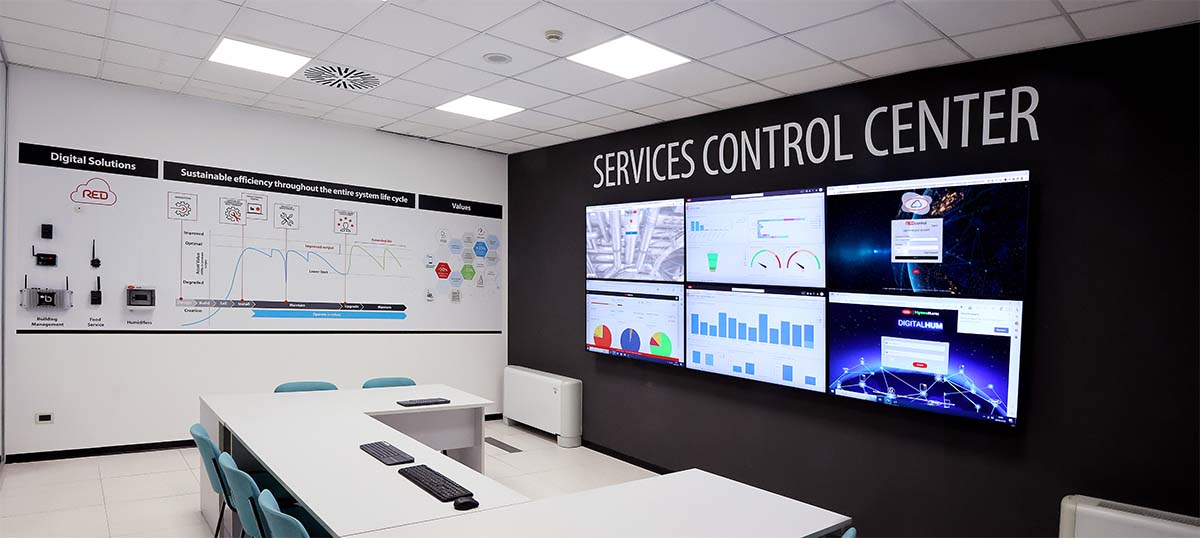
"Services for CAREL means not ending the relationship with customers upon delivery of the goods, but rather extending it throughout the life cycle, offering further benefits and creating a relationship of trust."
What was the journey that led CAREL to approach the services business and open a specific department?
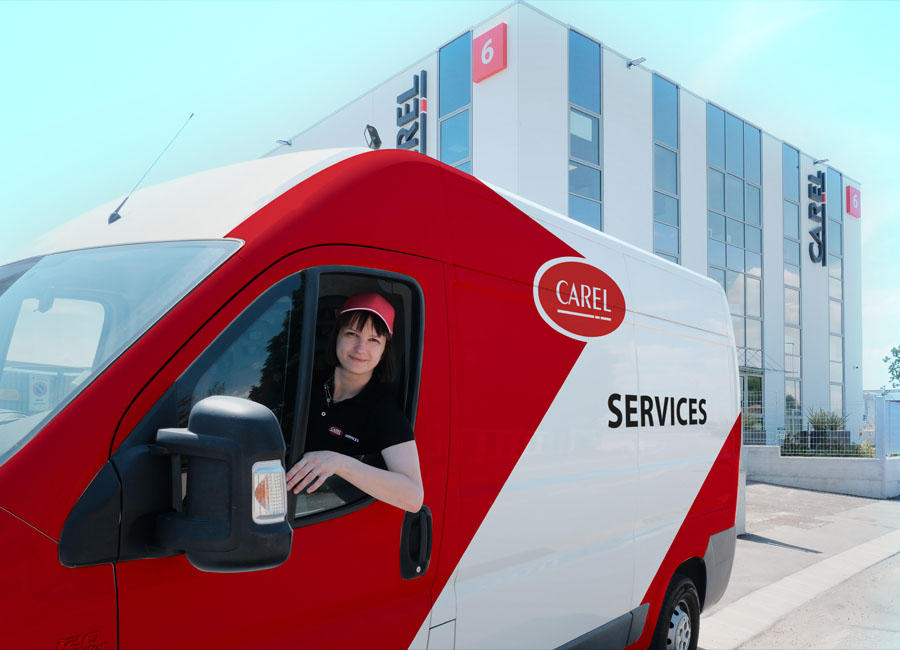 Bianchi: Since it first started building electrical panels, CAREL has always offered its customers the necessary service level. The initial business model indeed incorporated a number of services in the "product market", from after-sales - a basic customer service - to the supply of spare parts.
Bianchi: Since it first started building electrical panels, CAREL has always offered its customers the necessary service level. The initial business model indeed incorporated a number of services in the "product market", from after-sales - a basic customer service - to the supply of spare parts.
The need to develop services through the creation of a specific "market" has been latent over the last decade and has been managed reactively. In the last five years, however, developments in digital systems and the increase in the installation of humidifiers have led to growth in the need for installation, maintenance and commissioning services, which need to be managed carefully and proactively. Consequently, between the end of 2020 and the start of 2021, an operational unit was established with the task of developing the "services market" and present a complete ecosystem of services within the CAREL offering.
Previously, a form of project management had been set up to offer digital services to customers, especially OEMs, and this was further developed with the creation of the Services department. This department now manages a catalogue, procedures, processes and infrastructures to deal with the digital and non-digital services market in a structured manner.
What does services mean for CAREL? What does the Services department actually do?
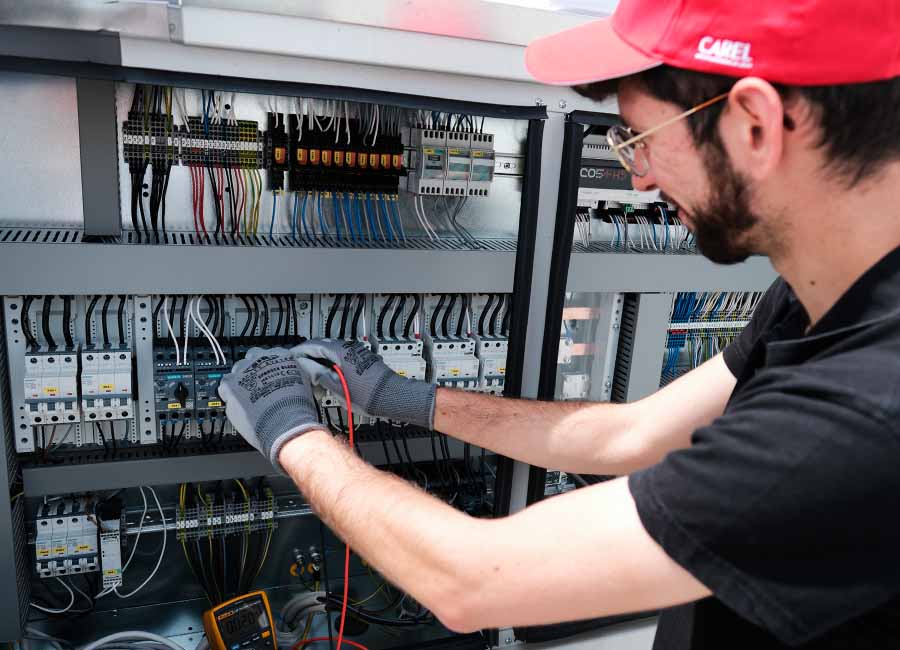 Bianchi: Services for CAREL means not ending the relationship with customers upon delivery of the goods, but rather extending it throughout the life cycle, offering further benefits and creating a relationship of trust, relieving customers from the need to carry out activities that are not typically part of their core business. In essence, it means taking control of energy efficiency through controllers and systems managed by the best technicians in the sector applying the most modern and effective technologies, and making spare parts and support available anywhere in the world. Let me give some figures highlighting the exponential growth of our service capacity over the last three years: today we have a million units connected to our monitoring systems, a hundred contracted service centres around the world, museums and healthcare facilities that trust us to manage their comfort and maintenance.
Bianchi: Services for CAREL means not ending the relationship with customers upon delivery of the goods, but rather extending it throughout the life cycle, offering further benefits and creating a relationship of trust, relieving customers from the need to carry out activities that are not typically part of their core business. In essence, it means taking control of energy efficiency through controllers and systems managed by the best technicians in the sector applying the most modern and effective technologies, and making spare parts and support available anywhere in the world. Let me give some figures highlighting the exponential growth of our service capacity over the last three years: today we have a million units connected to our monitoring systems, a hundred contracted service centres around the world, museums and healthcare facilities that trust us to manage their comfort and maintenance.
The Services department provides various lines of services, from training courses to digital services for customers, as well as monitoring the digital services themselves (verification of alarms and consequent actions). We have also developed a network of field operation partners for the management of humidifiers, both planned preventive maintenance to extend humidifier operating life and improve efficiency, and unscheduled service. Local to local, to assist and support customers, to be close to both the unit and the customer.
How many people work in services across the CAREL Group? Are there different approaches to managing services around the world?
Bianchi: CAREL’s growth, also in terms of M&A over the last two years, means we can currently count on around 150 direct employees who deal with Services in the Group, around a third of whom are still in the first stages of integration. While the principles underlying the “services market” are now common and globally consolidated, how “mature” the service is varies, and depends on geography and local legislation. In western Europe, and in the English-speaking and Nordic countries, there is the tendency to organise field services through important partnerships with large, specialist service centres; in Asia on the other hand, the focus is more on digitisation through local yet more widespread systems (technologies such as WeChat and AI). Furthermore, the proliferation of laws and regulations issued by the European Union and implemented by individual EU states gives extra impetus to the services market: taking, for example, the requirements of EPBD and F-Gas regulations, it is clear how know-how of the different applications in our reference markets can be of great help to customers.

What is the future of services?
Bianchi: Services are evolving rapidly, irreversibly changing the way products are purchased and marketed. Take for example digital twins, closely linked to the metaverse, which allow systems to be tested in a completely virtual way before purchase, or to replicate a problem in the field. Another revolution underway is the pay-per-use model, which could be applied to our humidification systems in the very near future. Technical support and documentation will be managed by generative AI systems, which we are currently also analysing at CAREL for future applications. Today we are anticipating the future: we are in a position where we can see, in real time and all over the world, the work of our service centres in the field, thanks to investments in our helpdesk information system. The next few years will be fun…
